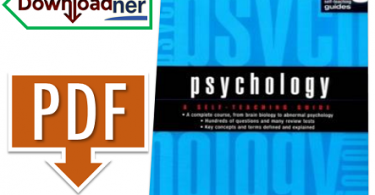How to Write a Better Thesis Download eBook I am fortunate to be working with Justin. Not only is he an accomplished supervisor and researcher in his own area of computer science, but he is also the author
of a book on writing that is a strong seller in the field. His skills and interests are
complementary to mine. Justin works and supervises in science and engineering; I
tend to work on qualitative studies in the social sciences.
We have made numerous changes to the second edition. As well as a thorough
revision of the text, we have added several new sections that clarify the process
of thesis writing. We have eliminated dated advice on word processing and use
of computers, for example, and brought forward and updated material concerning
written expression. We put greater emphasis on the challenges of thesis writing, the
experience of being a research student, the thinking that underlies methods, results,
and analysis, and the issues of working with supervisors. Much of the material in
this edition is completely new or rewritten, and our book is longer.
Over the years, as I have taught thesis writing seminars, I have used examples of
work from my own students to illustrate good writing; I have also used work from
John McDonald to show the characteristics of both good and bad theses based on
his analysis of examiners’ reports. I would like to thank my students, and John, for
allowing us permission to use their work here.
For ease of reading, we decided to blend each of our perspectives and experiences—David’s, Justin’s and my own—into a single collective voice. I hope that
you find our collaborative efforts help you to write a better thesis.
The framework of How to Write a Better Thesis is the mechanics of thesis writing, but the aim
throughout is to help students understand how to conceptualize and approach the
problems of producing a thesis, as well as to walk through the details of what a
thesis should (or shouldn’t) look like. Writing a book like this is something of a
journey. It has furthered my understanding of how a student learns to become a researcher, and I have had to sharpen my thinking across a range of topics; it has been
illuminating to capture some of the specific lessons learnt from the successes and
failures of our students. I hope the book is also a journey for our readers.
A note on style: as Paul has said, we’ve made no attempt to distinguish between
our experiences, including those of David, and have written in the first person. Every example is based on our experience of individual research students, and some of
them have been fictionalized to an extent, both to avoid embarrassing people and, in
many cases, to make the research more accessible to a general reader. Perhaps confusingly, we’ve sometimes changed the fictions for the students who were discussed
in the previous editions. (Think of it as artistic licence.) In cases where we have
quoted from a student’s work as an illustration of good work, a full citation is given.
How to Write a Better Thesis rests on our experiences with supervision and advising of upwards
of a hundred students, as well as the hundreds of students who have been in our
research methods subjects over the past two decades; far too many to name and
thank individually, but I am grateful to them for the insights they’ve brought me
and for our experiences together. It is not always obvious to a student how much the
supervisor is learning from them, so let this book stand in part as a testament to how
mutual a process graduate study can be.




